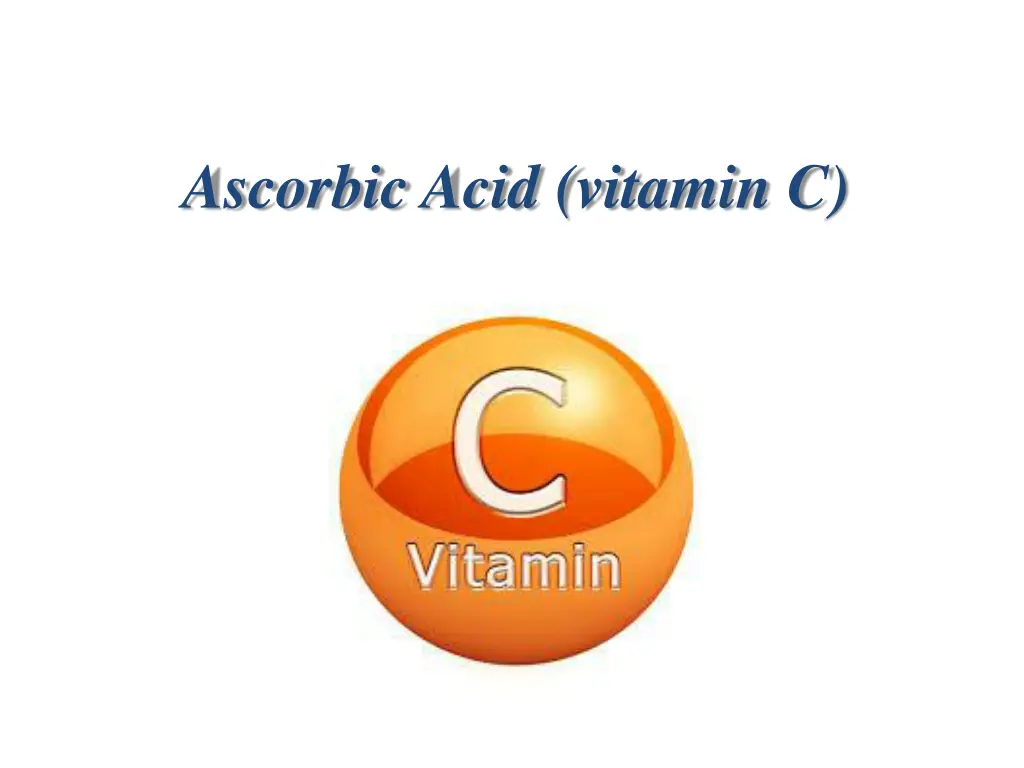
Vitamin C: Benefits, Sources, and Side Effects
Discover the importance of vitamin C in human health, its dietary sources, chemical properties, recommended daily intake, potential side effects of overconsumption, and numerous functions such as collagen synthesis, antioxidant properties, and more. Learn about the role of vitamin C in drug metabolism, detoxification, and various health benefits it provides.
Download Presentation

Please find below an Image/Link to download the presentation.
The content on the website is provided AS IS for your information and personal use only. It may not be sold, licensed, or shared on other websites without obtaining consent from the author. If you encounter any issues during the download, it is possible that the publisher has removed the file from their server.
You are allowed to download the files provided on this website for personal or commercial use, subject to the condition that they are used lawfully. All files are the property of their respective owners.
The content on the website is provided AS IS for your information and personal use only. It may not be sold, licensed, or shared on other websites without obtaining consent from the author.
E N D
Presentation Transcript
What is vitamin C? It is one of the most abundant vitamins that is required in large amounts by humans. Dietary sources : Vitamin C is found in a wide variety of fruits and vegetables. Fats and meat are lacking of vit.C except liver
In solution, it is easily oxidized into dehydro ascorbic acid and this is the basis for analysis of vitamin C.
It is stable in acidic solutions Both reduced and oxidized forms are biologically active The only animals that can not synthasize ascorbic acid are: Guinea pigs Rare species of bats Gorillas
Chimps Monkeys Humans Recommended dietary requirements of vitamin C: 1-3 months infants: 30 mg/day Growing boys: 80 mg/day Pregnant and lactating women: 100 mg/day
Side effects of Vitamin C over-dose: Diarrhea Redness of skin Headache Nausea Side or lower back pain Stomach cramps
Functions of ascorbic acid: Collagen synthesis Nor-epinephrine synthesis Iron absorption Steroid hormone synthesis Antioxidant Improves nitric oxide activity in blood vessels dilation Reduce sorbitol accumulation in eyes, nerves and kidneys
Drug metabolism and detoxification Carnitine synthesis Increase macrophage activity Cancer prevention Formation of bile Certain vitamin activation: folic acid Vitamin E recycling Antihistamine effect






















